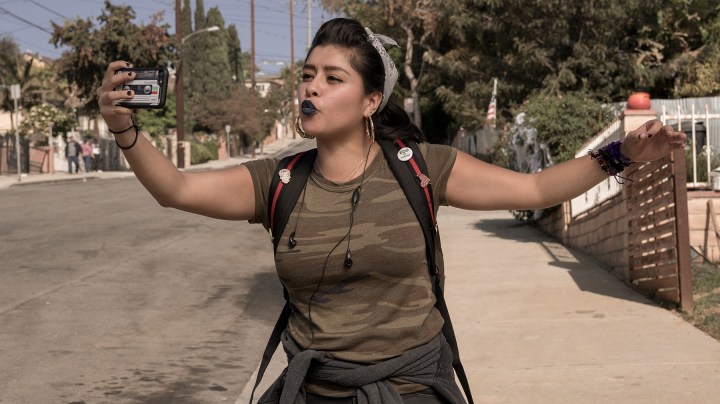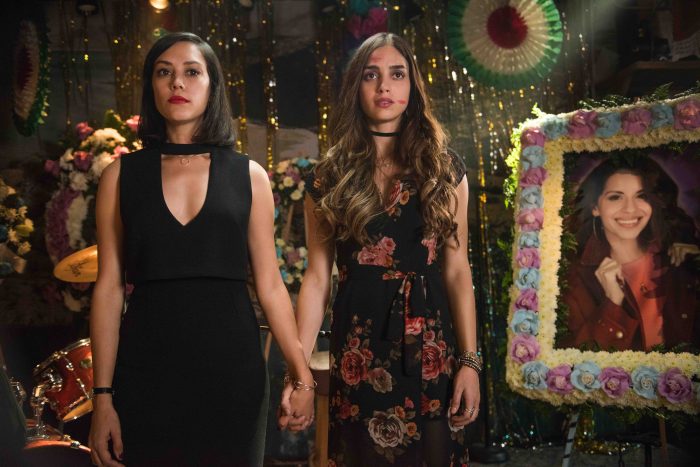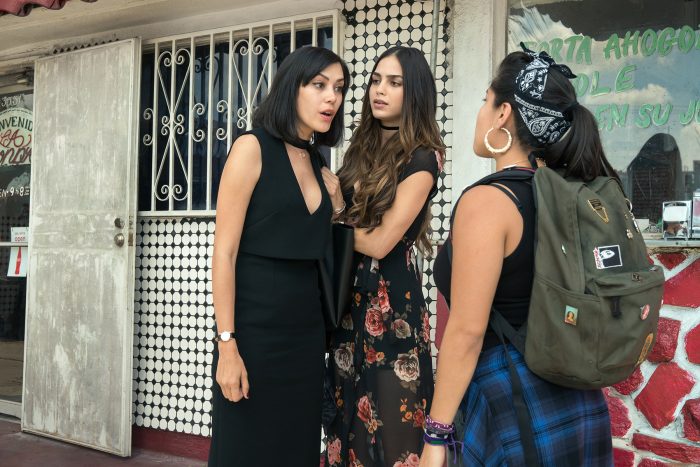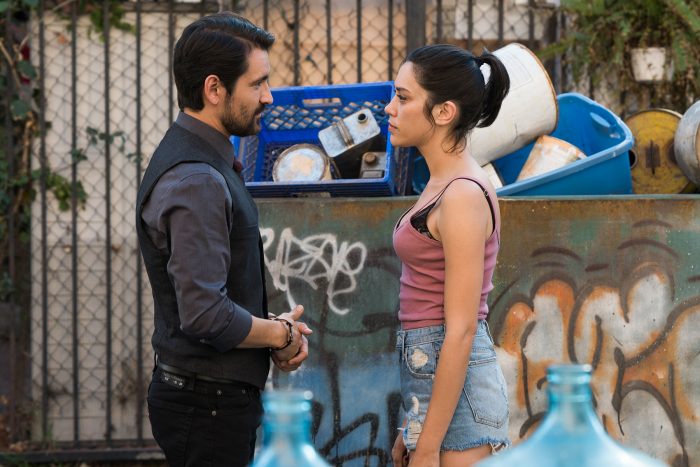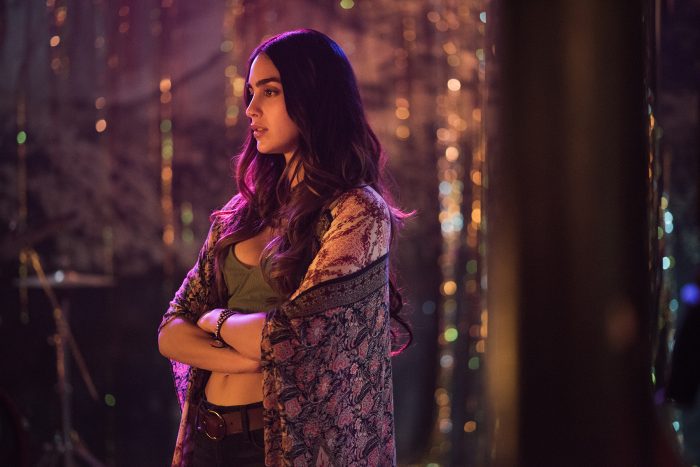"Witty and sexy and woke, <i>Vida</i> is the kind of out-there series about broken but resilient Latinx families many of us have been waiting for."
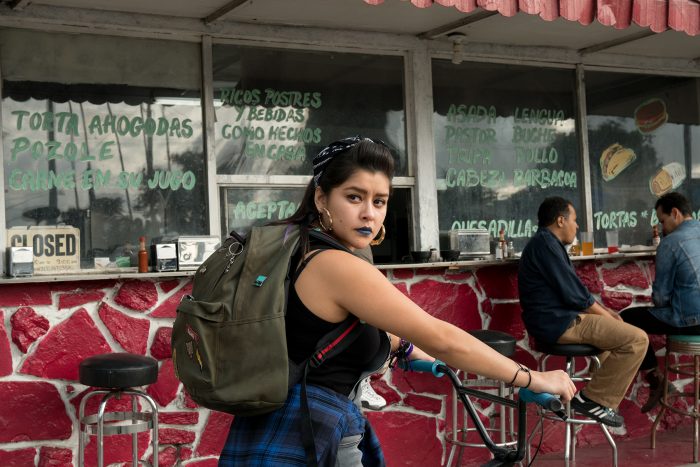
“Que pasa mi raza?” The very first words we hear in Vida address and create an audience at the same time. Speaking into her laptop, Mari (Chelsea Rendon) is a perfect introduction to the world of this show. Her dark lips, big hoops and bandanna all match her no-fucks-given attitude. She’s concerned about encroaching gentrification – in fact, before we hear her address her vlog followers we see her put up yet another anti-gentrification sticker on her wall. Immediately, this East Side-based series puts us squarely into a world where the personal is political and where every space is a place of contention.
By the time we meet Emma and Lyn (Mishel Prada and Melissa Barrera) and get to see how their family dynamics will intersect with Mari’s activism, the show’s made it clear it’s not afraid to wade into varying (and conflicting) visions of Latinidad in 2018. Here’s where I think the strength of Vida lies: it anchors its story in the particular and refuses to treat any of its Latinx characters as tokens. The Selena memories, the flans, the chilaquiles, the Spanglish all feels organic; an outgrowth of a world where floral prints and protest graffiti is rampant. They feel less like attempts at authenticity than authenticity rendered visible.
That’s also what I most enjoy about its approach to queerness. Sex is treated as a valid and valuable part of each character’s journey – all sex scenes inform character and advance story. Having your ex go down on you in an alley soon after your mom dies is the kind of poignantly specific scene that tells you a lot about Lyn’s emotional state as well as the show’s overall approach to feminist sex-positivity (even in characters who are cheating on their partners).
Witty and sexy and woke, Vida is the kind of out-there series about broken but resilient Latinx families many of us have been waiting for. Also, any show that uses the line, “Here’s closure: you waited to dump me until after I ate your ass” (addressed at a male actor unafraid to go full frontal) is gonna get a big two thumbs up from me.
– Manuel Betancourt
